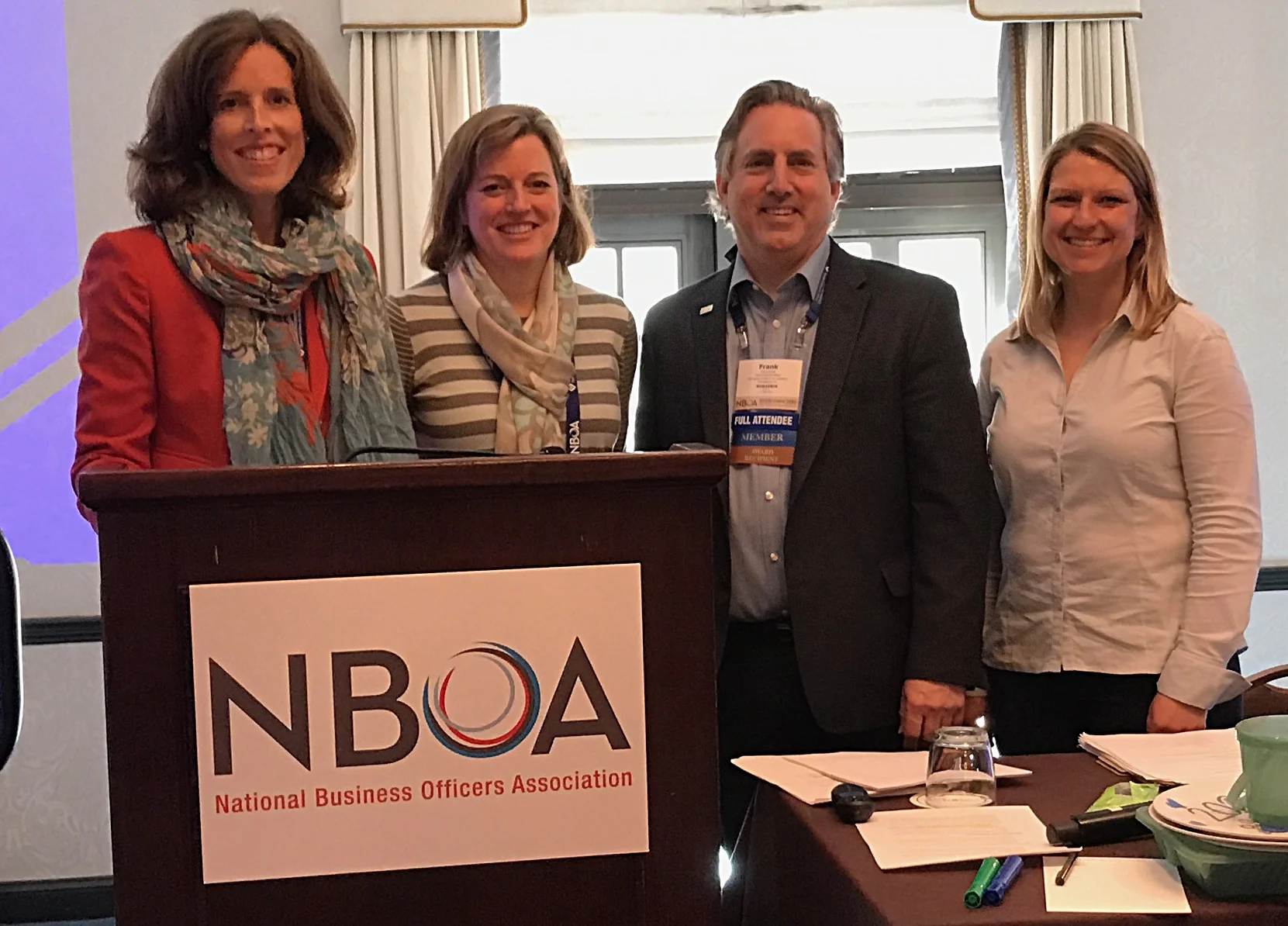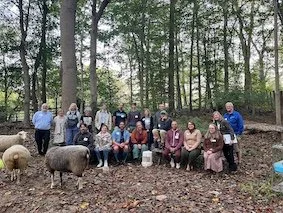Twenty-three educators, sustainability coordinators, and administrators from PAISBOA member schools gathered at The School in Rose Valley (SRV) for the PAISBOA Sustainability meeting, co-organized by PAISBOA and Boyer Sudduth Environmental Consultants (BSEC) on October 9th, 2025. This event provided a space for participants to share ideas, highlight campus initiatives, and strengthen connections around environmental sustainability.
Case Study: Middlebury College’s Journey Towards a Carbon-Neutral Campus
Middlebury College has positioned itself as a leading environmentally-conscious institution and is one of the first colleges/universities in the world to achieve carbon neutrality. A core part of the college’s mission statement emphasizes “addressing the world’s most challenging problems” – a vision that the community has actively pursued through its deep commitment to environmentalism and sustainability. By creating a roadmap to achieve carbon neutrality by 2016, this vision has come to fruition, though the journey hasn’t always been easy.
Eco-Schools USA: a Short Guide for Teachers & Administrators
Description
National Wildlife Federation’s Eco-Schools program is a free third-party certification program that uses school-based action teams of students, administrators, and educators to drive environmental stewardship and education in schools. Eco-Schools - USA has over 5,000 schools that are registered and internationally operates in over 60 countries. Schools can achieve four levels of certification: Bronze, Silver, Gold, and the internationally renowned Green Flag. Each level is based on the number of points a school achieves.
Certification Framework
Eco-Schools’ steps to achieve certification:
Authentically Engage the Community: Foster genuine connections both within and beyond the school environment, cultivating purposeful relationships.
Form an Action Team: Establish a student-led committee rooted in both the school and the community. Harness the group’s skills to drive environmentally-focused initiatives for the school community.
Develop an Action Plan: Develop a comprehensive plan outlining specific goals, actions, and timelines for improvement.
Take Action, Collect Data, and Measure Impact: Explore nature-based and community-driven solutions for addressing issues outlined in the team's action plan. Use accessible, fact-based storytelling to inform, raise awareness, and inspire action.
Monitor and Evaluate Progress: Gather information before and after to assess and measure the success of a school’s plan. Inform the school community about the progress and action results.
Identify Curricular Connections: Encourage curricular connections across disciplines.
Establish an Eco-Code and Celebrate: Acknowledge everyone who contributed and the remarkable positive influence on the school community. Create a code or framework for the future and showcase the school's achievement and celebrate!
Framework in Action
Once a school is registered, there are action steps to further a school’s sustainability goals that connect to the UN Sustainable Development Goals. On the Eco-School’s dashboard, there are points that a school must meet in order to achieve a specific level:
Credit: EcoSchools United States
Themes Addressed by Eco-Schools:
Eco-Schools addresses various environmental themes, allowing schools to tailor their sustainability efforts. These may include:
Waste Reduction: Strategies to minimize waste and promote recycling.
Energy Conservation: Initiatives to reduce energy consumption and increase efficiency.
Water Usage: Practices to conserve water resources within the school.
Biodiversity: Efforts to protect and enhance the diversity of plant and animal species.
Benefits of Eco-Schools
Environmental Impact: Schools contribute to a healthier planet by reducing their ecological footprint.
Educational Value: Students gain practical knowledge and skills related to sustainability.
Community Engagement: Eco-Schools foster a sense of environmental responsibility within the local community.
Point of Pride: Becoming an Eco-School has been a source of pride for many schools. This certification leads to more positive sustainable actions within a school community.
Getting Started
To embark on the Eco-Schools journey:
Register: Sign up for the Eco-Schools program to access resources and support.
Form Your Action Committee: Assemble a dedicated team passionate about sustainability.
Implement Action Plan: Begin making positive changes, one step at a time and record them in your action dashboard.
Submit your application! Applications are open from the first Friday in April to the first Friday in June. (Note: To register for the highest level, Green Flag, registration is due by January 26, 2024.)
Conclusion
Eco-Schools empowers educational institutions to become catalysts for positive environmental change. By putting the certification framework into action, forming dedicated Action Teams, addressing key themes, and embracing sustainability, schools can contribute to a greener and more sustainable future. For more information, see Eco-Schools-USA.
Article by Sarah Treacy, Sustainability Intern at Boyer Sudduth Environmental Consultants.
Article printed in PAISBOA’s Friday Flyer Vol . XIII, No. 1 - January 12, 2024
2021 Grants to Green Your School
Save Money. Save Energy. Save the Planet: A New Focus for the Climate is Everybody's Business Project
Given the current social and economic challenges facing local businesses and non-profits, in the next phase of Brookline’s Climate is Everybody’s Business the project’s emphasis will shift slightly. While environmental issues will remain at the project’s forefront, the refocus to “Save money. Save energy. Save the planet.” will emphasize how sustainability efforts can provide economic benefits during this challenging time. While the project’s focus remains on fighting climate change, its leaders are committed to building not only a sustainable future, but one that is also racially, socially, and environmentally just and equitable.















